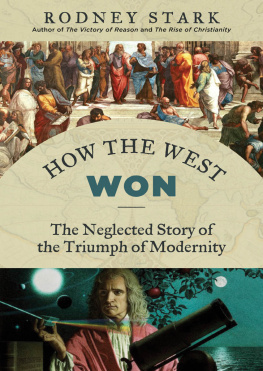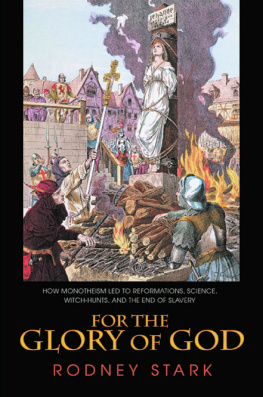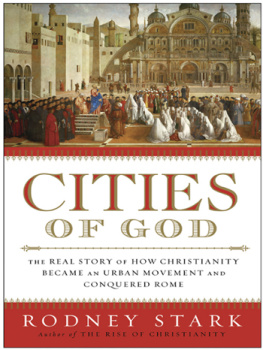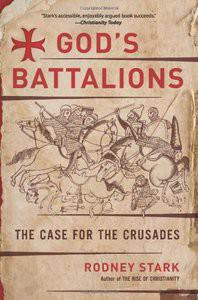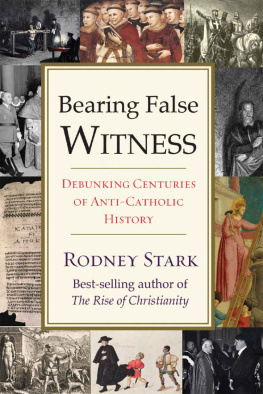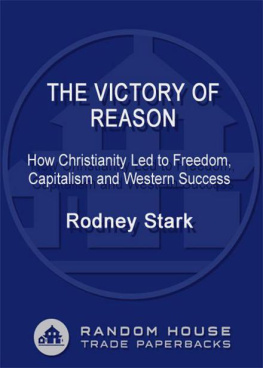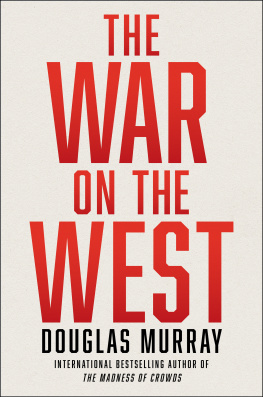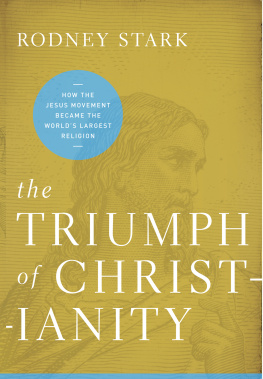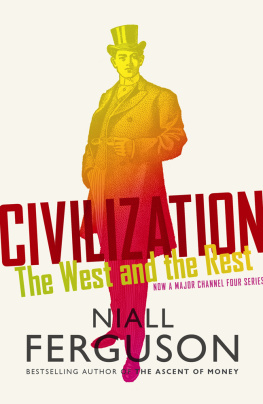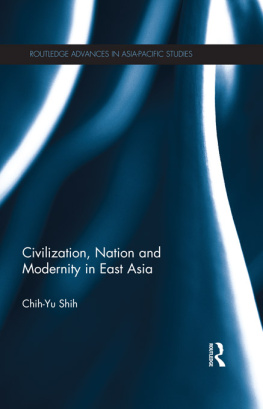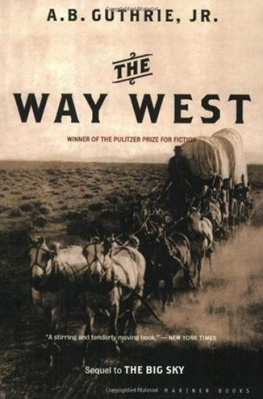Rodney Stark - How the West won: the neglected story of the triumph of modernity
Here you can read online Rodney Stark - How the West won: the neglected story of the triumph of modernity full text of the book (entire story) in english for free. Download pdf and epub, get meaning, cover and reviews about this ebook. year: 2014, publisher: Intercollegiate Studies Institute, genre: Religion. Description of the work, (preface) as well as reviews are available. Best literature library LitArk.com created for fans of good reading and offers a wide selection of genres:
Romance novel
Science fiction
Adventure
Detective
Science
History
Home and family
Prose
Art
Politics
Computer
Non-fiction
Religion
Business
Children
Humor
Choose a favorite category and find really read worthwhile books. Enjoy immersion in the world of imagination, feel the emotions of the characters or learn something new for yourself, make an fascinating discovery.
- Book:How the West won: the neglected story of the triumph of modernity
- Author:
- Publisher:Intercollegiate Studies Institute
- Genre:
- Year:2014
- Rating:3 / 5
- Favourites:Add to favourites
- Your mark:
How the West won: the neglected story of the triumph of modernity: summary, description and annotation
We offer to read an annotation, description, summary or preface (depends on what the author of the book "How the West won: the neglected story of the triumph of modernity" wrote himself). If you haven't found the necessary information about the book — write in the comments, we will try to find it.
Abstract: Finally the Truth about the Rise of the West Modernity developed only in the West & mdash;in Europe and North America. Nowhere else did science and democracy arise; nowhere else was slavery outlawed. Only Westerners invented chimneys, musical scores, telescopes, eyeglasses, pianos, electric lights, aspirin, and soap. The question is, Why? Unfortunately, that question has become so politically incorrect that most scholars avoid it. But acclaimed author Rodney Stark provides the answers in this sweeping new look at Western civilization. How the West Won demonstrates the primacy of uniquely Western ideas & mdash;among them the belief in free will, the commitment to the pursuit of knowledge, the notion that the universe functions according to rational rules that can be discovered, and the emphasis on human freedom and secure property rights. Taking readers on a thrilling journey from ancient Greece to the present, Stark challenges much of the received wisdom about Western history. How the West Won shows, for example: & middot; Why the fall of Rome was the single most beneficial event in the rise of Western civilization & middot; Why the & ldquo;Dark Ages & rdquo; never happened & middot; Why the Crusades had nothing to do with grabbing loot or attacking the Muslim world unprovoked & middot; Why there was no & ldquo;Scientific Revolution & rdquo; & middot; Why scholars & rsquo; recent efforts to dismiss the importance of battles are ridiculous: had the Greeks lost at the Battle of Marathon, we probably would never have heard of Plato or Aristotle Stark also debunks absurd fabrications that have flourished in the past few decades: that the Greeks stole their culture from Africa; that the West & rsquo;s & ldquo;discoveries & rdquo; were copied from the Chinese and Muslims; that Europe became rich by plundering the non-Western world. At the same time, he reveals the woeful inadequacy of recent attempts to attribute the rise of the West to purely material causes & mdash;favorable climates, abundant natural resources, guns and steel. How the West Won displays Rodney Stark & rsquo;s gifts for lively narrative history and making the latest scholarship accessible to all readers. This bold, insightful book will force you to rethink your understanding of the West and the birth of modernity & mdash;and to recognize that Western civilization really has set itself apart from other cultures. & ldquo;Stark has a vigorous prose style and a gift for clear explanation. The pace is swift, and the narrative thrilling. & rdquo; & mdash; The New York Times & ldquo;Fun to read, full of anecdote and incident ... Mr. Stark is especially adept at challenging received ideas. & rdquo; & mdash; The Wall Street Journal & ldquo;Stark proves himself once again as a historical myth-buster. & rdquo; & mdash;CBN.com & ldquo;Rodney Stark turns what we & lsquo;know & rsquo; about history on its head. & rdquo; & mdash; Relevant & ldquo;Stimulating and provocative ... Deftly researched. & rdquo; & mdash; Publishers Weekly & ldquo;Wonderfully readable prose and politically incorrect conclusions. & rdquo; & mdash; World & ldquo;[Stark & rsquo;s] works are an encouraging corrective to the anti-Western history routinely taught in our schools. & rdquo; & mdash; New Oxford Review & ldquo;Compelling reading, adding depth and coherence to the often nebulous hyperbole of historical hypotheses. Highly recommended. & rdquo; & mdash; Library Journal Rodney Stark is the award-winning author of The Victory of Reason, The Rise of Christianity, God & rsquo;s Battalions, and many other books. He serves as Distinguished Professor of the Social Sciences at Baylor University
Rodney Stark: author's other books
Who wrote How the West won: the neglected story of the triumph of modernity? Find out the surname, the name of the author of the book and a list of all author's works by series.

